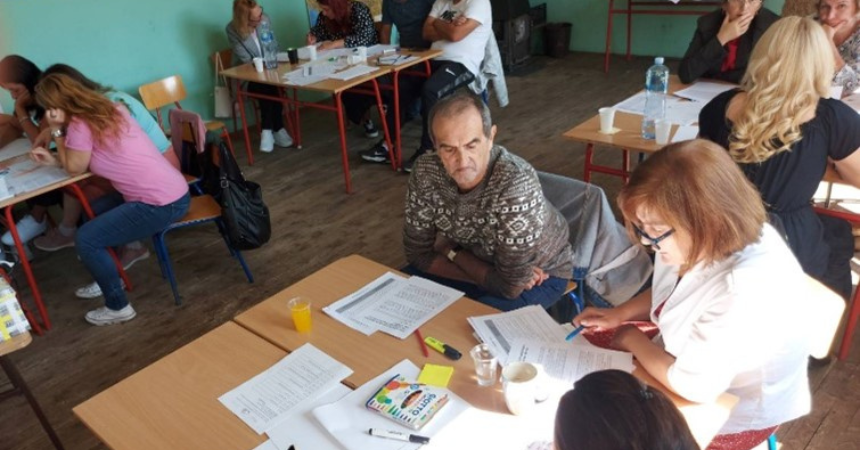The Center for Professional Learning at Childhood Education International is excited to share a new free compendium of resources comprised of practical activities language teachers can use in their classrooms.
The compendium includes 58 entries of activities focused on five categories: Social and Emotional Learning, Play-based Learning, Asset-based Pedagogies, Drama-based Pedagogies, and Ice Breakers & Other Activities.
It was created by a team of English language educators from Ukraine and the United States participating in the Holistic Language Pedagogies (HLP) Project.
Interactive Learning & Growth Activities
Activities in the compendium were designed to provide educators working with students of various ages with new activities that encourage language-learning, community-building, social-emotional learning, and more.
Each activity includes a brief description of its purpose and proposed use, as well as instructions for how to lead students in the activity. Project participants submitted activities they found useful in their teaching and then collaborated to support revisions of each other’s contributions.
A Variety of Fun & Powerful Activities
Examples of activities in the compendium include:
Social-Emotional Learning
- Circle of Control (page 7) – Students draw or write things that are outside and inside their circles of control and are reminded to focus on the things in the circle they have control over.
- Empathy Mapping (page 8) – Students create an empathy map by identifying what a character or peer said, did, thinks, and feels, helping them connect with and identify others’ inner worlds.
- Rose, Thorn, Bud (page 17) – Students share something positive or a success (a rose), something challenging (a thorn), and something they are looking forward to (a bud).
Play-Based Learning
- Mystery Game (page 33) – Students play a guessing game to learn interesting and unknown facts about their classmates.
- Question Ball (page 34) – Students throw around a paper ball while trying not to get caught holding it when the music stops. The person holding the ball at the end answers a question.
- Running Dictation (page 36) – Students run down a hall to read a passage and then run back and dictate what they remember back to other students, who write it down.
Asset-Based Pedagogies
- Fortune Cookies (page 43) – Students write positive messages they share with each other as “fortunes.”
- Growth Mindset (page 44) – Students practice coming up with alternative ways to speaking to themselves that encourage a growth mindset, rather than a fixed mindset (i.e. Rather than saying or thinking, “This is too hard,” students might tell themselves, “I am allowed to take my time as long as I keep trying”).
- Something for Everybody (page 51) – Working in groups, students come up with plans for how they would spend money in a way that would benefit everyone in the class and advocate for why their idea is the best.
Drama-Based Pedagogies
- Acting-Out Dictacomp (page 55) – A teacher acts out new words or phrases as the students learn them, and then the students act them out.
- Imaginarium (page 58) – Students pose in freeze-frames to describe what they are doing and collectively create a fascinating scene.
Ice-Breakers and Other Activities
- A Life in Numbers (page 60) – Working in pairs, students make a list of five numbers that are connected with something important in their lives and try to guess their meanings.
- Digital Storytelling (page 63) – Students create a storyboard and produce an animated version to collectively tell a story.
- Interrupt My Story! (page 67) – Students are encouraged to interrupt with questions as frequently as possible while the teacher tells a story.
The resource compendium is available in our Open Educational Resource Library, along with other free professional development resources for educators.
Download the Resource Compendium
Holistic Language Pedagogies Project
The HLP Project brought together English language educators from Ukraine and the United States to learn about and apply holistic language pedagogies together in a virtual community of practice.
Learn More About Our Holistic Teaching & Learning Initiatives
Educators presented webinars at the end of the project, some of them sharing activities shared in the compendium.
Watch Recordings of the Project Webinars

